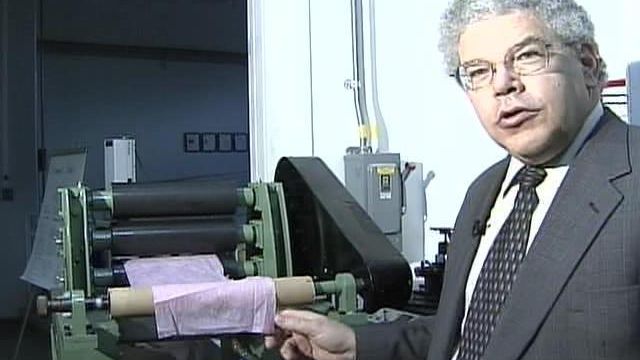Health Team
Textile Coating Can Wipe Out Germs
NC State textile scientists have come up with a coated fabric that kills the flu virus, along with other viruses and bacteria.
Posted — UpdatedRALEIGH, N.C. — Infectious disease experts say we will have a flu pandemic, whether sooner or later.
Since necessity is the mother of invention, NC State textile scientists came up with one. They devised a coated fabric that kills the flu virus, along with other viruses and bacteria.
The anti-germ weapon is a light-activated chemical that can be applied to almost any fabric, the inventors say. Because it's photo-reactive, it does not work in the dark. When it is exposed to light, however, there is a chemical reaction and the cloth becomes lethal to viruses and bacteria, according to LaamScience, Inc., which is working with NCSU and Emory University scientists to perfect the invention, known as a nanocoating.
Dr. Stephen Michielsen, an associate professor in with NCSU College of Textiles, collaborated with medical experts at the Emory University School of Medicine to develop the technology.
"We've gotten so we can kill over 99.9 percent of influenza viruses," Michielsen said.
First, the special coating soaks the material. Then, it's squeezed out, dried and becomes part of the fabric. The cloth can be used on everything from clothing to bed sheets, air filters and upholstery.
Thomas Roberg, chief executive officer of Laam, is working to market the idea while the scientists continue testing.
"This particular technology could become ubiquitous," Roberg said. "It can be in airplanes. It can be in hospitals."
Researchers are still testing the effectiveness of the photo reactive coating over time and in different environments, but Michielsen and Roberg believe it could be a big weapon against public health threats that worry people, such as the avian virus, or bird flu. One obvious application, they said, is face masks to help protect against airborne viruses.
"This is really a potential, partial solution for a pandemic." Roberg said.
NC State has applied for a patent on the invention.
• Credits
Copyright 2024 by Capitol Broadcasting Company. All rights reserved. This material may not be published, broadcast, rewritten or redistributed.





